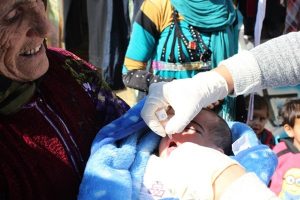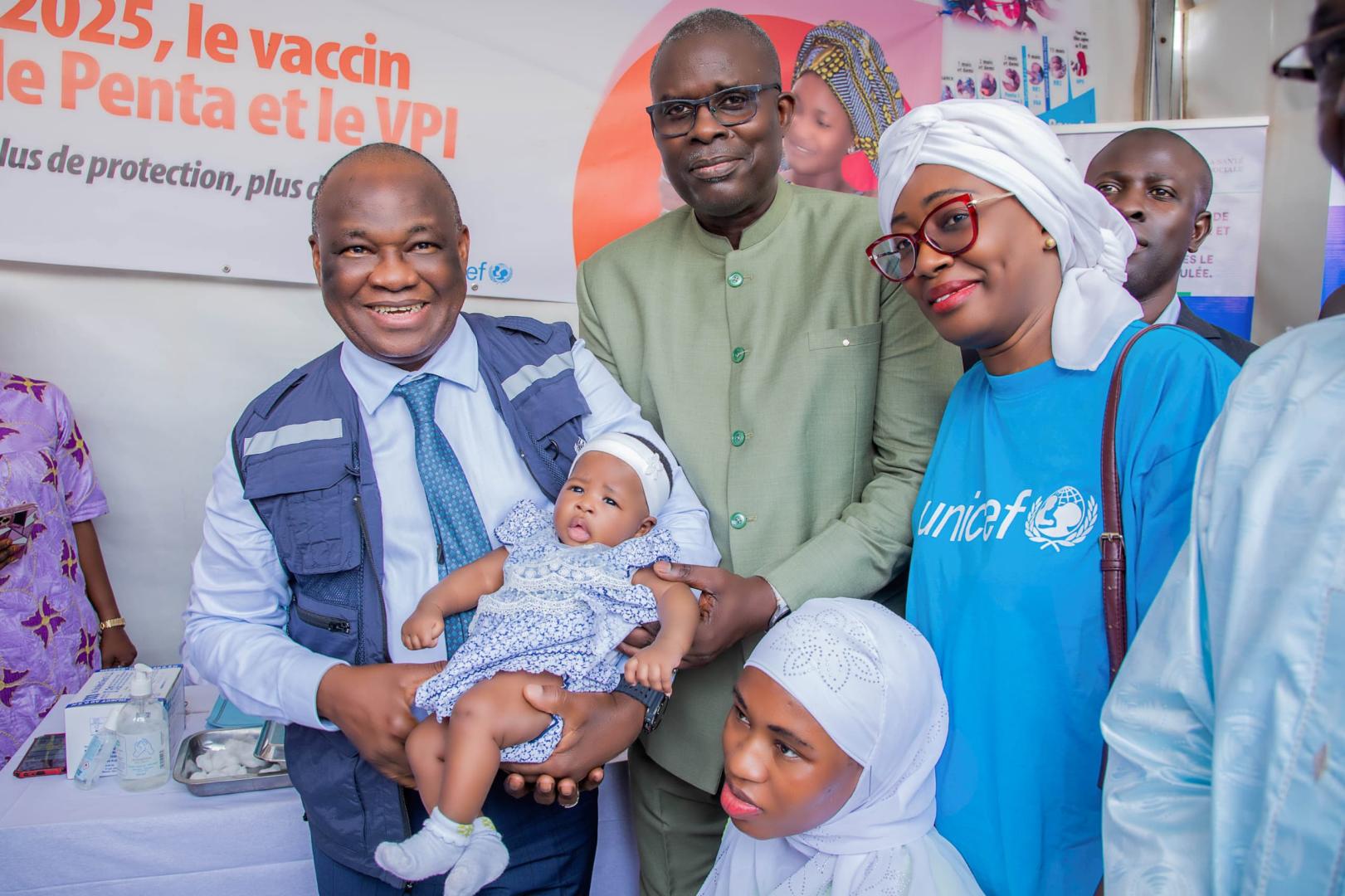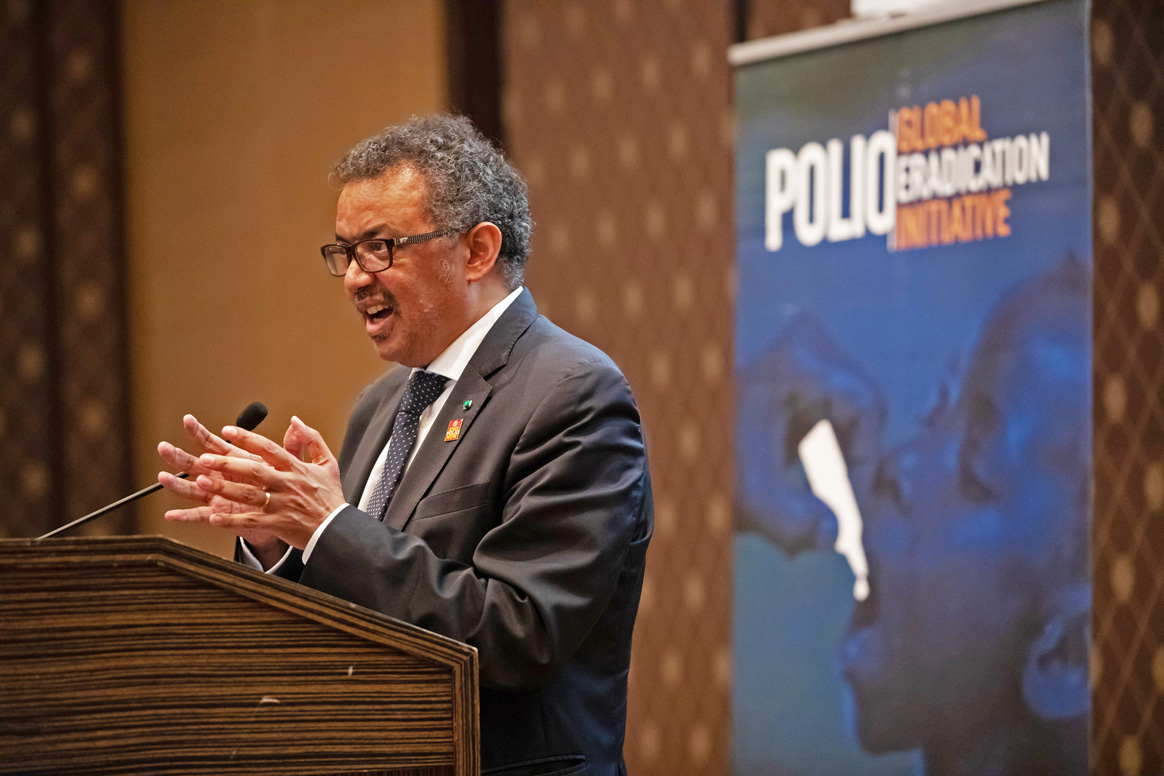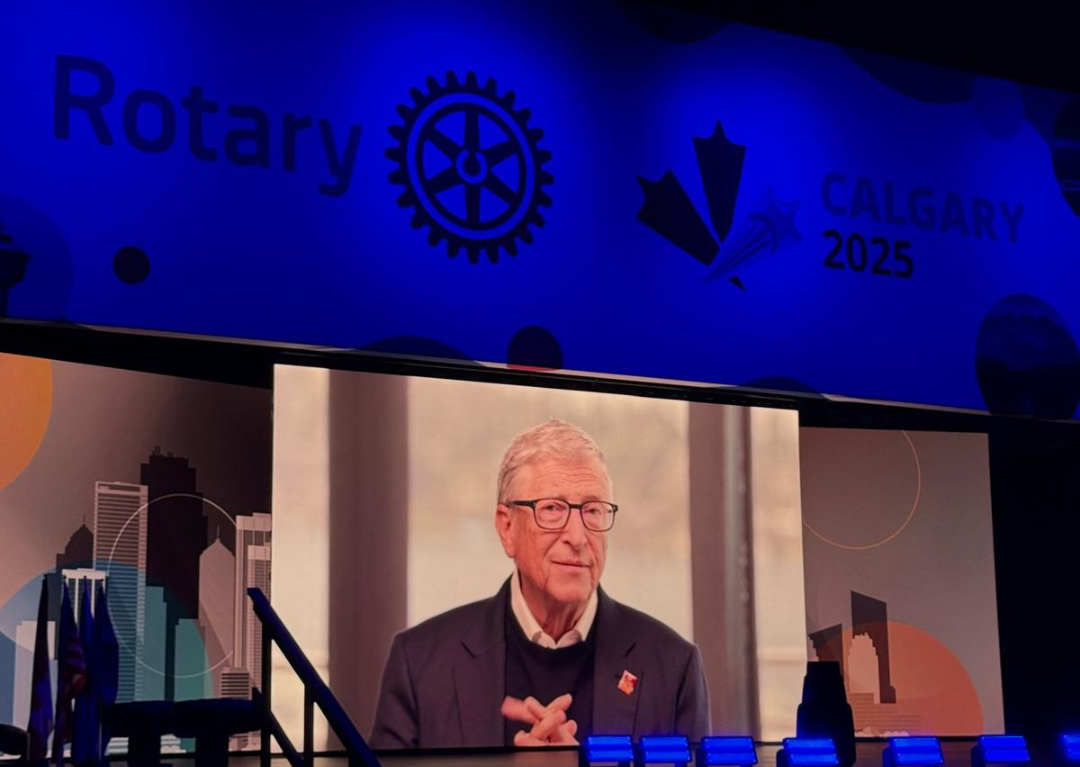
On the 26 and 27 January the Middle East Polio Outbreak Response Meeting was held in Beirut to review the response to the outbreak of polio that began in 2013 in Syria, and to plan for the next phase of response.
The World Health Organization and UNICEF congratulated everyone involved in the extraordinary effort since October 2013, from governments and non-governmental organizations (NGOs) through to health workers and volunteers, and most importantly parents. Tremendous efforts, especially from those health workers on the frontline working under extremely difficult conditions, have established the Middle East outbreak response as one of the most effective in recent years globally.
At the Outbreak Response Review Meeting, updates of the current situation and plans were presented from 8 countries within the region, with particular emphasis on the highest priority countries, Syria and Iraq, where cases of polio were reported during the outbreak.
The review concluded that the evidence demonstrated that the Middle East outbreak response has prevented a major multi country epidemic. Best practices from Phase II were shared, including evidence for successful measures taken to reach high risk populations, processes for tailoring interventions to reach missed children, the engagement of private sector physicians, the mobilization of social media, and the role of community leaders in supporting polio eradication activities.
The success of the outbreak response was attributed to several key factors. Firstly, rapid, repeated and targeted vaccination campaigns enabled 27.7 million children to be reached across the sub region, with over 142 million doses of oral polio vaccine provided since the first of 56 vaccination campaigns was rolled out since October 2013. In addition, strong commitment from national and local authorities, NGOs, the United Nations and communities who participated in the process were absolutely crucial in the scale of the response.
Phase I and II of the response have improved levels of immunization against polio across the region and strengthened surveillance. The containment of the virus to just two countries in the region despite conflict and major population movements was commended. The review also showed that during phase II, efforts were made to improve basic immunization services for internally displaced people and refugees, especially in high risk areas, with the support of polio staff.
The review committee was quick to emphasise that major threats remain in the region. The possibility remains that transmission continues undetected, or that the virus could be reimported from remaining reservoirs of the virus, such as Pakistan, the original source of the outbreak in the Middle East. In addition it was stressed that inconsistencies remain in the quality of immunization activities and surveillance across the region and that immunity gaps remain in high risk areas where conflict makes access a significant challenge.
With these challenges in mind, plans were set in place at the meeting for phase III of the response. Syria and Iraq will remain the highest geographic priorities, with additional high focus on high risk populations in Jordan, Lebanon and Turkey. Programmatically, the highest priority will be to access hard-to-reach or displaced populations, minority groups and mobile communities by addressing social barriers to vaccination, as well as those caused by insecurity. A plan will also be put in place so that any re-emergence of polio viruses is rapidly responded to. The work plans will continue to draw on cross-border cooperation to detect and investigate cases, and to reach all groups.
Keeping momentum against polio in the Middle East is crucial in the coming months to ensure that no more children are killed or crippled by this disease ever again.



